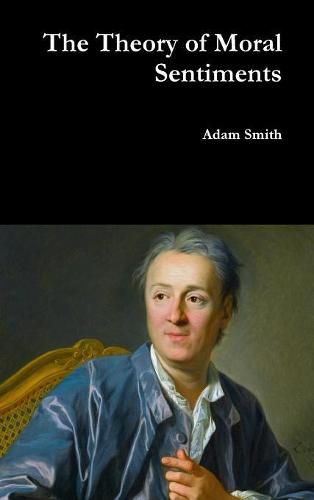Readings Newsletter
Become a Readings Member to make your shopping experience even easier.
Sign in or sign up for free!
You’re not far away from qualifying for FREE standard shipping within Australia
You’ve qualified for FREE standard shipping within Australia
The cart is loading…






This title is printed to order. This book may have been self-published. If so, we cannot guarantee the quality of the content. In the main most books will have gone through the editing process however some may not. We therefore suggest that you be aware of this before ordering this book. If in doubt check either the author or publisher’s details as we are unable to accept any returns unless they are faulty. Please contact us if you have any questions.
In his first important work, economist Adam Smith concentrates on ethics and charity. The Theory of Moral Sentiments divides moral philosophy into four parts: Ethics and Virtue; Private rights and Natural liberty; Familial rights ('Economics'); and State and Individual rights ('Politics'). Smith establishes the intellectual framework for all of his later work, including The Wealth of Nations.
$9.00 standard shipping within Australia
FREE standard shipping within Australia for orders over $100.00
Express & International shipping calculated at checkout
This title is printed to order. This book may have been self-published. If so, we cannot guarantee the quality of the content. In the main most books will have gone through the editing process however some may not. We therefore suggest that you be aware of this before ordering this book. If in doubt check either the author or publisher’s details as we are unable to accept any returns unless they are faulty. Please contact us if you have any questions.
In his first important work, economist Adam Smith concentrates on ethics and charity. The Theory of Moral Sentiments divides moral philosophy into four parts: Ethics and Virtue; Private rights and Natural liberty; Familial rights ('Economics'); and State and Individual rights ('Politics'). Smith establishes the intellectual framework for all of his later work, including The Wealth of Nations.